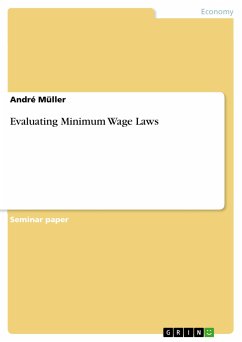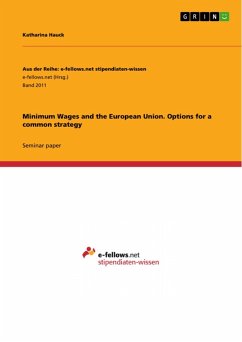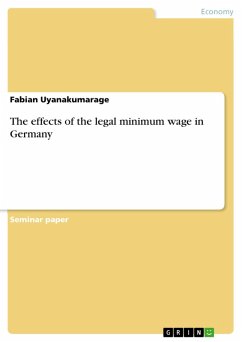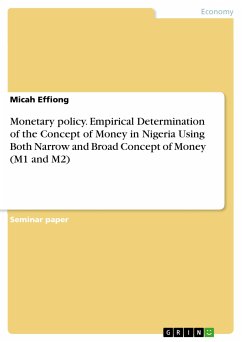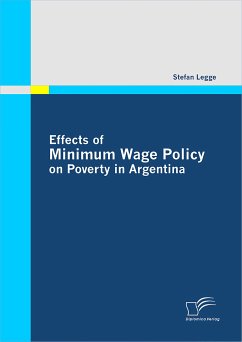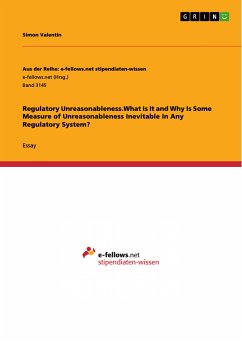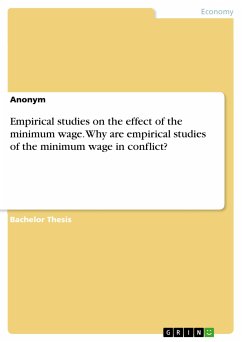
Empirical studies on the effect of the minimum wage. Why are empirical studies of the minimum wage in conflict? (eBook, PDF)
Sofort per Download lieferbar
Statt: 29,95 €**
18,99 €
inkl. MwSt. und vom Verlag festgesetzt.
**Preis der gedruckten Ausgabe (Broschiertes Buch)
Weitere Ausgaben:

PAYBACK Punkte
0 °P sammeln!
Bachelor Thesis from the year 2018 in the subject Business economics - Economic Policy, grade: 1,3, Otto-von-Guericke-University Magdeburg (Wirtschaftswissenschaften), language: English, abstract: The minimum wage is an often discussed topic between economists and politicians. The introduction of the minimum wage in Germany as well as in other countries leads to the emergence of new questions. Point of views on the consequences of the minimum wage differ greatly. Supporters of the minimum wage claim that the wage leads to an improvement in the well-being of low income families. Furthermore, th...
Bachelor Thesis from the year 2018 in the subject Business economics - Economic Policy, grade: 1,3, Otto-von-Guericke-University Magdeburg (Wirtschaftswissenschaften), language: English, abstract: The minimum wage is an often discussed topic between economists and politicians. The introduction of the minimum wage in Germany as well as in other countries leads to the emergence of new questions. Point of views on the consequences of the minimum wage differ greatly. Supporters of the minimum wage claim that the wage leads to an improvement in the well-being of low income families. Furthermore, they support the view that the introduction of the minimum wage diminishes the distance between high and low income families. On the contrary, opponents argue that the minimum wage cannot reduce inequality in low income families as the correlation between low-wage workers and their families is not strong enough. The opposed view declares that the minimum wage would target families among the entire distribution of incomes resulting in a target inefficiency and lower demand for labor and therefore higher unemployment. Empirical research tries to evaluate the contrary discussed consequences in order to derive a conclusion on the effects of employment, income distribution, employment hours and other factors affected by a minimum wage. Some researchers infer that the minimum wage leads to the reduction of employment of low-wage workers, while other experiments conclude that the minimum wage does not have any negative employment effects and might even boost employment. Therefore, the aim of this paper is to evaluate why empirical research ascertains different point of views on the minimum wage and which factors play an important role in the development and evaluation of the experiments. Hence, this paper examines the following research question "Why are empirical studies of the minimum wage in conflict?".
Dieser Download kann aus rechtlichen Gründen nur mit Rechnungsadresse in A, B, BG, CY, CZ, D, DK, EW, E, FIN, F, GR, HR, H, IRL, I, LT, L, LR, M, NL, PL, P, R, S, SLO, SK ausgeliefert werden.




